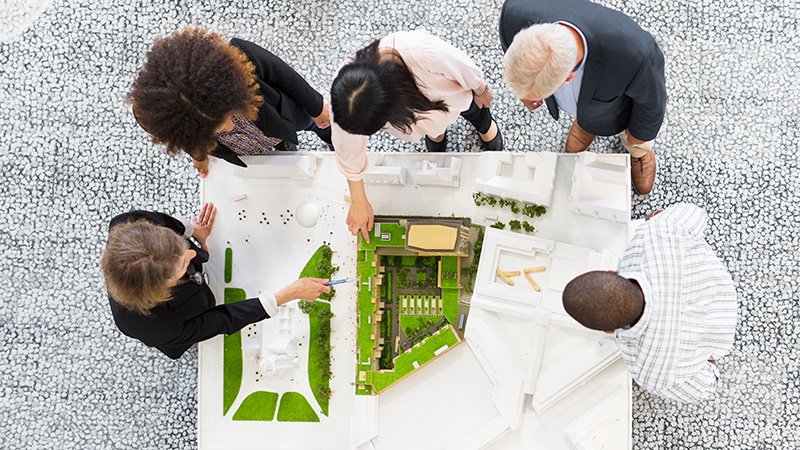From school integration to budget reform, Rick Cole has spent his life encouraging cities to meet their residents’ needs in smart and sustainable ways. Here's his advice for city officials.
Read MoreTo understand how one city leader can spearhead the housing reforms your city needs, look no further than Rebekah Kik, the deputy city manager for Kalamazoo, Michigan.
Read MoreWhen suddenly faced with paying his mortgage alone, Noah Tang of Bloomington, Illinois, went old school. He turned his spare rooms into monthly rentals for students in his college town. This helped him make ends meet and also helped him build community.
Read MoreThe way we design our places forms a lesson in being in that space. Children learn important lessons from third places that bring us together — lessons they can’t learn in private spaces like yards that isolate us in the name of privacy.
Read MoreAdvocacy work means a lot of waiting and hoping for a better future. That makes it a lot like Advent (the weeks before Christmas on the Christian calendar). But waiting during Advent isn’t discouraging or boring: It’s hopeful, active and joyful. Here are a few ways to bring that approach to your community, whether you celebrate Christmas or not.
Read MoreWhat we pay attention to shapes what we love. So, as national problems and politics take center stage, let’s remember to pay attention locally, too. It’s where we can make the biggest impact and build the most endurance for the work ahead.
Read MoreFor Asheville, North Carolina, rebuilding might mean questioning some rules and getting creative to allow for the same kind of incremental development that made the city so unique and gave it such a quirky (and productive) local economy.
Read MoreDon't be scared off by the policy changes and wonky jargon: Incremental development is fundamentally about seeing potential in your neighborhood, about observing problems and then coming up with creative ways to address them.
Read MoreChildren need the option to participate in the outside world, not just to fear it. Here's how Tiffany Owens Reed is carving out space for her son.
Read MoreAlec Davis is the founder of Momentum Des Moines, an urban advocacy organization dedicated to building a better city by working with local government to end car dependency and make the city more accessible for everyone
Read MoreErik Lowe is the founder of Reimagine Spokane, a grassroots group calling for safer streets and better transit, and the designer of the “Spokane Reimagined” plan, a $1 billion proposal to improve safety and connectivity in Spokane, Washington, over 20 years.
Read MoreOne of the most daunting questions for many would-be advocates is “Where do I start?” The answer is simple: You start by noticing the issues around you and taking a single step to fix them.
Read MoreDesigning streets to encourage safe behavior is a powerful tool for creating lasting prosperity. But when cars are designed to encourage unsafe behavior, it threatens to undo that progress.
Read MoreConversations with local decision-makers are an essential part of advocating for stronger cities. To make the best use of this sometimes-rare opportunity, you need to know the right questions to ask.
Read MoreSometimes, cities say that they’re taking an incremental approach when they’re really just breaking a master plan down into steps. This method lacks the creative, bottom-up nature that makes incremental development so resilient, tricking people into believing they’re making their city stronger when they’re really not.
Read MoreWhat is a city, anyway? Many problems in the urbanism realm boil down to people having different ideas of what a city is and what purpose it has. To be an effective advocate, make sure you and the people you’re talking to are on the same page.
Read MoreMany cities try to improve their downtowns through master plans, hoping that grand projects will draw residents and customers into the city core. But this often fails because truly strong, attractive downtowns form through incremental development.
Read MoreThe lament, “There’s nothing to do here,” might sound like teenage grumbling, but there may be more wisdom to it than meets the ear. Maybe we should look at our cities through the lens of organic social activities, both because they're enjoyable and because it gives us a chance to reconsider our values and the relationship between our design choices and our community’s social life.
Read MoreAn initiative that encourages people to use a bike instead of a car seems like a good thing, but does National Bike to Work Day actually encourage bikeability?
Read MoreAs an advocate, it’s easy to feel discouraged when you can’t prompt any big changes in your community, or even among your loved ones. Be patient: Just as many small actions can help cities grow incrementally stronger, the small impacts you have on others can lead to big changes over time.
Read More



















